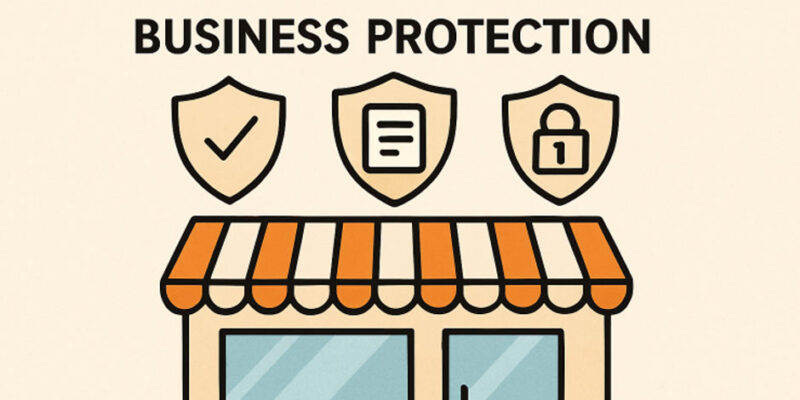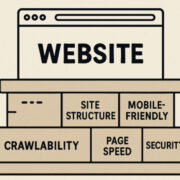Introduction
Securing the right insurance is a foundational step in protecting your business from unforeseen risks and financial setbacks. Whether you’re launching a startup or reviewing your coverage as an established company, understanding what drives small business insurance quotes is crucial for making cost-effective, informed decisions. To ensure you get the best protection at a competitive price, start by researching reputable providers known for their tailored policies—consider reviewing small business insurance quotes early in your planning process.
Taking the time to compare policies and understand each coverage option allows business owners to anticipate and mitigate unexpected losses. This guide outlines the core considerations when requesting insurance quotes, enabling you to prepare your information, decipher complex policy language, and identify the types of insurance that best suit your needs.
What Influences Small Business Insurance Quotes?
- Key business characteristics insurers examine: Insurers look at your business type, annual revenue, number of employees, and years in operation. The legal structure of your business, whether a sole proprietorship, partnership, LLC, or corporation, can also influence the risk profile and, subsequently, your quote.
- How industry type affects pricing: Businesses operating in high-risk industries, such as construction, typically receive higher quotes compared to those in low-risk fields, like consulting. Insurers assess the typical risks associated with your business activities to calculate appropriate premiums.
- The impact of location and local risks: Your business’s physical location affects insurance pricing due to factors like crime rates, susceptibility to natural disasters, and proximity to emergency services. For instance, a business in an area prone to flooding may face higher property insurance costs.
Types of Insurance Coverage Small Businesses Should Consider
- General liability insurance and its role: This is foundational coverage for all businesses, protecting against claims of bodily injury, property damage, and advertising injury.
- Workers’ compensation requirements: Most states require this coverage if you have employees. It covers medical expenses and lost wages for job-related injuries or illnesses. For details, see the U.S. Department of Labor’s overview of workers’ compensation.
- The importance of property and cyber insurance: Property insurance covers damage or loss to buildings, equipment, and inventory. As more businesses rely on digital infrastructure, cyber insurance is increasingly vital to safeguard against data breaches and cyberattacks.
Factors That Affect Insurance Costs
- Business size and payroll details: Larger businesses with higher payrolls and more assets often have higher premiums due to greater exposure.
- Claims history and its impact on quotes: A history of multiple insurance claims can result in higher premiums, signaling increased risk to insurers.
- How safety protocols and risk management save money: Implementing workplace safety programs, providing employee training, and installing appropriate security systems can often lead to reduced insurance costs.
How to Prepare Information Before Requesting Quotes
- Crucial documents and records to gather: Insurers typically request information such as business licenses, payroll data, details of business assets, and prior claims history.
- Tips for estimating business assets and coverage needs: Make a comprehensive inventory of your property, including buildings, equipment, and inventory. Assess the value of each item to ensure adequate coverage and avoid underinsurance.
Comparing Quotes: What to Look For
- Reading and understanding policy details: Scrutinize the terms, deductibles, coverage amounts, and what events are included.
- Watching for policy exclusions and limits: Be alert for exclusions that may leave your business exposed or low coverage limits that won’t fully protect you in the event of a loss.
- How endorsements and riders may benefit your business: These can customize your policy to better fit your specific operations, such as expanding cyber coverage or adding coverage for employees working overseas.
Common Questions Business Owners Ask About Quotes
- Can coverage be customized for unique business needs? Yes, most insurers offer add-ons and endorsements that allow you to tailor standard policies to your specific risks.
- How does bundling policies affect premiums? Bundling multiple types of coverage with a single provider, such as general liability, property, and auto insurance, can often result in discounts and simplified policy management. For more, see Investopedia’s article on insurance bundling. This approach not only saves money but also streamlines claims and renewals, reducing administrative headaches. Additionally, having all policies under one provider can improve coordination in the event that multiple claims arise simultaneously.
Steps to Requesting a Small Business Insurance Quote
- Evaluate your specific business risks by identifying threats your industry and location may face.
- Identify the types of coverage needed based on your operations and potential liabilities.
- Organize your business information, including financial records and any previous claims, to ensure accuracy when submitting applications.
- Request personalized quotes from several reputable providers to compare offers side by side.
- Review and compare each policy for price, coverage limits, exclusions, and additional benefits before making a decision.
Conclusion: Making Informed Choices About Insurance Quotes
Understanding the quoting process empowers you to customize coverage that effectively protects your business. Proactive research and comparison shopping help ensure you secure optimal coverage and value, ultimately supporting your business’s long-term resilience. By taking the time to evaluate different policies and providers, you can identify options that align closely with your specific risks and operational needs.

















